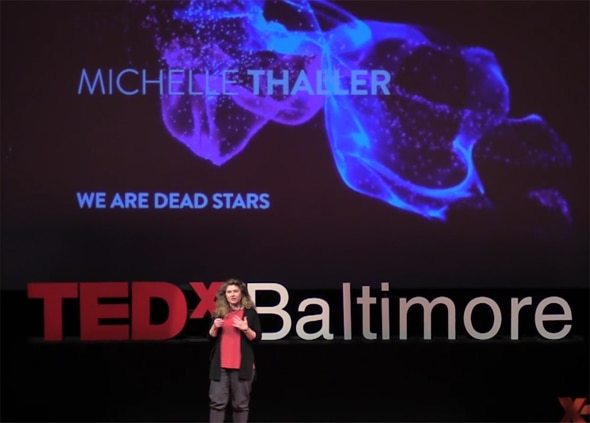Create a free profile to get unlimited access to exclusive videos, sweepstakes, and more!
We Are Dead Stars

My friend Michelle Thaller is an amazing person. I met her when she was doing public outreach for NASA’s Spitzer Space Telescope mission many years ago, and she has since risen in the ranks at NASA to become the deputy director of science communication there. She has a wide and deep understanding of astronomy, so much so that I asked her to be my science/astronomy adviser on Crash Course Astronomy.
But there’s more to it than that. She has more than knowledge; she has a profound appreciation for astronomy. She’s connected to it, and it informs her life in a deeply fundamental way. She and I see things very similarly in that manner, which is why I so enjoyed her recent TEDxBaltimore talk, “We Are Dead Stars.”
Before we had an understanding of physics and mathematics, we made up stories about how we came to be. Some of them are comforting, some of them hit on some basic truths, and some speak to us emotionally, poetically, or philosophically. That’s fine, but what these myths tend to lack is evidence, or at least a self-consistent narrative based on that evidence (rather than trying to ignore evidence that doesn’t fit the story).
The beauty, the true power of science, is its ability to weave the evidence into a self-consistent story that ever-approaches describing reality, and to test that evidence to make sure it’s true. For example, we measure the speed of light and find it to be rapid, but finite. That means when we see farther back in space, we see farther back in time. If we go back far enough, we see a simpler Universe, with only hydrogen and helium in it. Since that dawn of space and time, we see stars making heavier elements and scattering them into space when they die. We are made of these heavier elements, and therefore we are made of dead stars.
This is not just myth. This is fact, based on evidence and investigation and experimentation. And yet it is a story, a wonderful one, of how we came to be. It’s our origin story, and it has the profound and deeply impactful advantage of being true.
You can (and should!) follow Michelle on Twitter, and also subscribe to her podcast, Orbital Path.


























